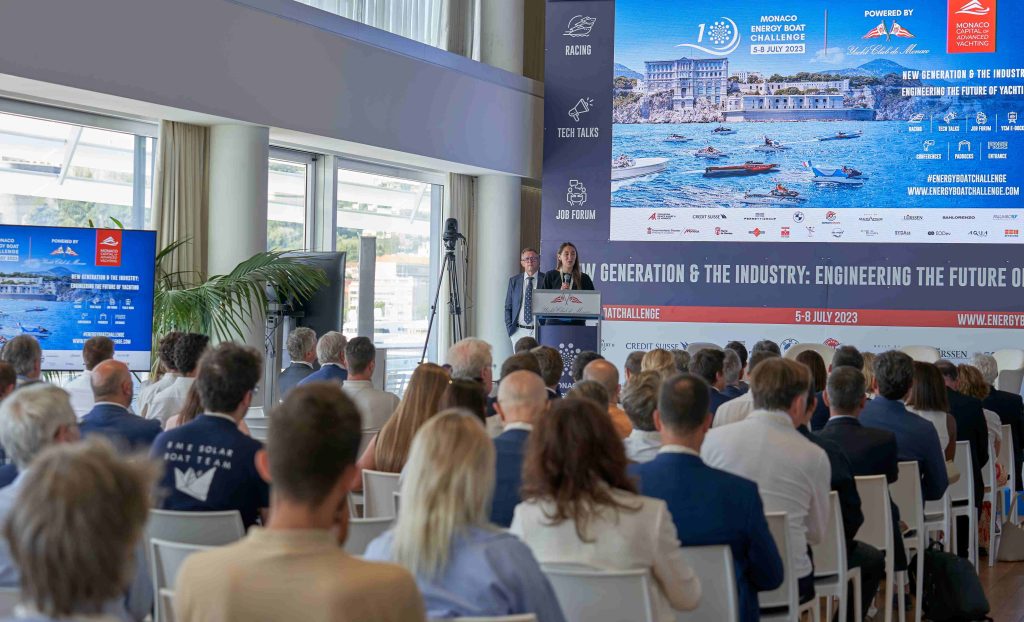Monaco – “Alternative Fuels and Advanced Yachting Technologies” was the title of one of the conferences organized at the Yacht Club de Monaco during the Monaco Energy Boat Challenge, aiming to shape the yachting of the future. Sharing the ambition of the Monaco Capital of Advanced Yachting initiative, the conference focused on raising awareness about technology in the boating and yachting industries, specifically concerning alternative fuels and cutting-edge technologies.
Methanol and its role in achieving the net-zero goal were among the key topics discussed from the perspective of the yachting industry.
“At Lürssen, we have been interested in alternative fuels for many years and have studied various types. Several criteria are important when considering alternative fuels, such as energy density, safety, ease of handling, and storage,” said Bernhard Urban, Head of Development and Innovation at Lürssen. “Methanol is the most promising fuel in terms of energy density. It is very easy to handle and can be stored in the bottom of the boat. On the other hand, hydrogen has a lower energy density and must be stored in a cylindrical tank that cannot be located at the bottom of the yacht, taking up valuable space. That is why we opted for methanol. Today, the yachting industry has more or less come to understand that different engine manufacturers are developing engines for methanol,” he added.
“We need to work together: we need shipyards, technical partners, but also the trust of yacht owners and crews, the availability of fuels at ports, and the promptness of authorities in defining regulations,” said Paolo Bertetti, Technical Vice President and R&D at Sanlorenzo.

The role of nuclear energy in the pleasure boating sector was also discussed.
“It is possible to have a nuclear reactor on board a yacht. The question is whether it is efficient. We began research on this about a decade ago, but for small reactors, we still had to wait. We found that it is possible to integrate it into the yacht, which would then be a bit larger and heavier. However, as most of our yachts only sail for a limited period each year, we believe that having a nuclear reactor on board is less efficient. Indeed, the reactor can provide 100% of the energy throughout the entire year, but we only use the full amount of energy for a few percentage points of the time. The rest of the time is spent at anchor. We therefore think it is more efficient to have a nuclear reactor on land or floating. We believe this will come sooner or perhaps later if the production of nuclear reactors increases, costs decrease, safety issues are resolved, and public acceptance is achieved. Perhaps in 20 to 30 years, there will be room for nuclear reactors on board,” said Ronno Schouten, Senior Specialist at Feadship.
When it comes to sustainability, measuring emissions and defining life cycles is crucial.
“We are continuing the SEA Index® initiative, and today we have launched a collaboration with the maritime classification society RINA. This is a new methodology for calculating CO2 emissions based on refueling and fuel choice. It is also a forward-proof methodology because it can account for biofuels and varying concentrations of these biofuels as part of a sustainable approach. We hope that this methodology, which will soon be available on our website, will be used by people and will allow them to see the impact depending on the type of fuel chosen,” said Natalie Quevert, SEA Index® project leader.